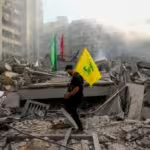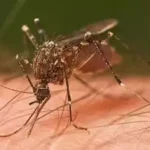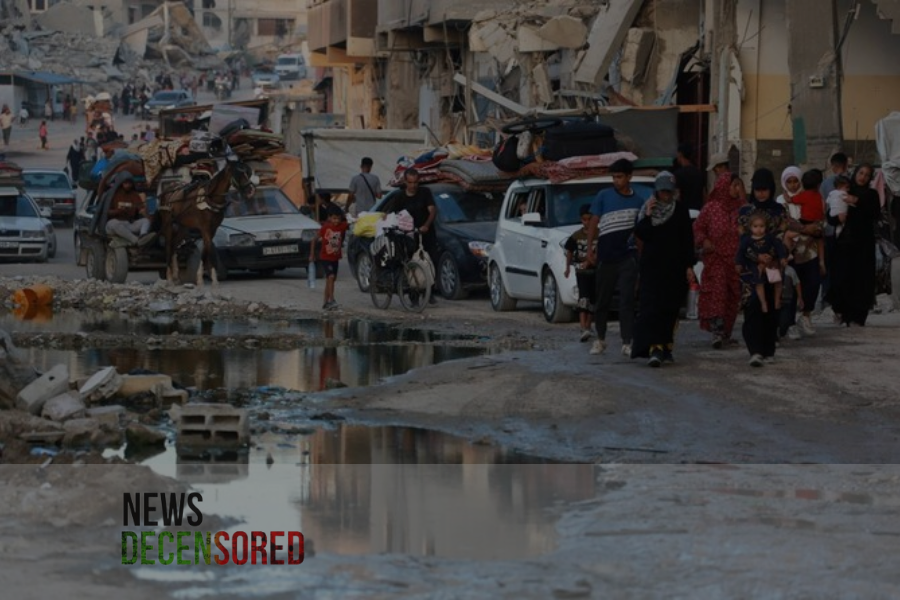The Israeli army on Monday ordered the evacuation of several neighborhoods in Khan Younis and Rafah in the southern Gaza Strip, an area to which hundreds of thousands of Palestinians had fled in May after 20 rockets were fired at southern Israel.
Witnesses told AFP that many fled these areas after receiving orders to evacuate from Al-Qarara, Bani Suhaila, and other towns in the governorates of Rafah and Khan Yunis.
People are terrified and anxious after the evacuation order was issued,” said Ahmed Najjar, a resident of Bani Suhaila, speaking of a massive displacement. Witnesses and the Civil Defense reported that Israel launched air strikes that included areas in southern Rafah and the Nuseirat refugee camp in the central Gaza Strip.
Our forces are operating in Rafah, Shujaiya (in Gaza City), and all over the Gaza Strip… It is a difficult battle that we are waging on the ground, sometimes through direct engagement, and underground,” Israeli Prime Minister Benjamin Netanyahu told the war cabinet on Sunday.
After launching a ground offensive in northern Gaza on October 27, the Israeli army gradually advanced southward, each time ordering residents to evacuate the areas it targeted. On May 7, the Israeli army launched a ground operation in Rafah, a city on the border with Egypt, described as the final stage of the war against the Islamist movement, forcing a million Palestinians to flee, according to the United Nations.
But in recent weeks, fighting has intensified again in many areas that the Israeli army had declared control over, especially in the north, while the attack continues in Rafah.
Hours ago, the Al-Quds Brigades, the armed wing of the Islamic Jihad movement, announced its responsibility for “bombarding” Israeli sites “in the Gaza Strip envelope with concentrated rocket barrages in response to the crimes of the Zionist enemy against our Palestinian people.”
For its part, the Israeli army said it “repelled about twenty projectiles fired from Khan Yunis,” adding that “a number of them were intercepted and some fell in southern Israel.” It said its artillery targeted the source of the fire. On Monday, the army announced the death of a soldier in southern Gaza, bringing the death toll to 317 since October 27.
An AFP correspondent saw Israeli helicopters bombing Shujaiya, while Hamas confirmed fighting in Shujaiya and Rafah. According to the United Nations, between 60,000 and 80,000 Palestinians fled east and northeast Gaza City after the army ordered them to evacuate on Thursday.
In his first statement after his release, Abu Salmiya confirmed during a press conference that “the prisoners are subjected to all kinds of torture… many prisoners have died in interrogation centers.” Abu Salmiya said he was not charged with any crime during his detention.
The Israeli intelligence agency, Shin Bet, said it had decided to release the detainees in cooperation with the Israeli military to reduce overcrowding. It added that it opposed the release of those who had participated in attacks on Israeli civilians and those who were “less dangerous.” But Netanyahu said he had ordered an investigation into the release and that the results would be provided to him on Tuesday, adding that “the release of the director of Shifa Hospital is a grave mistake and a moral failure. The place of this man, who killed and held under his responsibility our kidnappers, is in prison.”
At least 37,900 people have been killed in the Gaza Strip, according to the latest tally from the Hamas-run health ministry, including 23 in the past 24 hours. The war has caused mass displacement and a humanitarian disaster in the Gaza Strip amid water and food shortages where thousands of children suffer from malnutrition, according to the World Health Organization.















